The fourth annual Hollywood World Award, a collaboration between Screen International and the Hollywood Film Festival, will be presented in Los Angeles on October 22 this year and the line-up of 10 finalists is an impressive one.
All of this year's shortlisted titles had their world premieres at Cannes in May and include the Palme d'Or winner 4 Months, 3 Weeks & 2 Days as well as other prize-winners Persepolis, The Diving Bell And The Butterfly, The Edge Of Heaven and Secret Sunshine.
The notion behind the prize is to draw attention in the Hollywood community to some of the year's most notable international titles, from the most accessible, such as Eran Kolirin's crowd-pleasing The Band's Visit, to some of the most challenging, including Ulrich Seidl's Import/Export and Carlos Reygadas' latest opus Silent Light.
The shortlist was voted on by festival directors and critics from around the world, enlisted by Screen, and covers all the major festivals this year up to and including Toronto in September.
Of course, as the awards season gets into gear, many of these foreign-language films will gain greater momentum in the US market.
Miramax Films is planning an aggressive release for The Diving Bell And The Butterfly as is Sony Pictures Classics for both Persepolis and The Band's Visit. Several of these films are already submissions for the foreign-language film Academy Award, namely 4 Months (Romania), The Band's Visit (Israel), The Edge Of Heaven (Germany), Persepolis (France) and Secret Sunshine (South Korea).
It is a refreshing year for the Hollywood World Award in that several of the directors are relatively new to film-making. The list includes first features from Marjane Satrapi and Vincent Paronnaud, Anton Corbijn and Kolirin, not to mention exciting young directors such as Fatih Akin, Reygadas and Cristian Mungiu.
Click on title to see review
(UK)
Dir: Anton Corbijn
Anton Corbijn's austere black-and-white biopic of Joy Division singer Ian Curtis, who committed suicide in 1980 at the age of 23, was one of the most feted non-competition films in Cannes.
Opening Directors' Fortnight and going on to win two collateral prizes, it also cleaned up at the Edinburgh International Film Festival, winning the Michael Powell Award for new British feature, while actor Sam Riley picked up a best performance prize for his intense take on the troubled frontman.
Based on the memoir, Touching From A Distance: Ian Curtis And Joy Division, written by Curtis' widow Deborah, the film focuses on the man rather than the band. We follow the eccentric, possessed, other-worldly Curtis from his glam-rock beginnings in 1975, the year of his teen marriage, through to his last months. Towards the end, Joy Division's growing success was complicated by the singer's epilepsy, his frequent bouts of depression, and the guilt induced by the extramarital affair he had embarked on with a Belgian fanzine writer.
The film's title nods at one of Joy Division's best-known songs, She's Lost Control, but it's also a good description of its style, which is striking but unshowy, using Martin Ruhe's high-contrast monochrome photography to tell a compelling story in a stark, linear way.
But this is also one of those films that stands or falls on the quality of the main performance - and newcomer Riley, who had a job in a warehouse folding shirts when he auditioned for the role, rises to the challenge, both off and on stage (in the concert footage, Riley nails Curtis' famously jerky, epileptic dance).
Strong contributions from Samantha Morton as Debbie Curtis and Alexandra Maria Lara as the singer's lover, Annik Honore, round out the cast.
Corbijn, a photographer well known for his rock-and-roll portraits (which included two iconic Joy Division images) put up half of the $6.4m (EUR4.5m) budget for this debut feature, which was co-produced by - among others - Deborah Curtis and Tony Wilson, the late Factory Records impresario who features in Michael Winterbottom's 24 Hour Party People.(LM)
Festival debut: Cannes 2007.
US distributor: The Weinstein Company.
US release: October 10, 2007 (limited).
(Russia)
Dir: Alexander Sokurov
Nobody is likely to mistake Alexandra for anything other than a film from Alexander Sokurov. Over the course of a prolific 30-year career, the Russian auteur has developed a highly individual style, spinning dream-like soft-focus narratives that sometimes appear to unfold in a no-man's land between slumber and consciousness. His fascination with 20th century tyrants has seen him bring an idiosyncratic viewpoint to bear on the intimate lives of Hitler, Lenin and Hirohito. Sokurov has a preoccupation with war and peace but also a desire to celebrate the bonds of family love that has been paramount in films such as Mother And Son (1997) and m(2003).
All the recurring themes of Sokurov's career come together in the masterful Alexandra, which follows a loving grandmother as she visits an army camp inside Chechnya where her grandson is a Russian army captain. They have not seen each other for seven years but she endures the heat and the danger to bring about this reunion. It is a reflection on the price of war and also a love letter to the leading lady, Galina Vishnevskaya.
Opera singer Vishnevskaya and her husband Mstislav Rostropovich, the cellist and conductor, were the subject of Sokurov's 2006 documentary Elegy Of Life. Now the director has created a demanding role that makes her the eyes and ears of the audience. There are no scenes of war or carnage in the film but as Vishnevskaya's dignified old lady wanders through the barracks observing the soldier's life, her reactions and concerns provide all the commentary we require on the folly of conflict and an emotional legacy that may never heal properly.(AH)[QQ Festival debut: Cannes 2007.
US distributor: TBC.
(Romania)
Dir: Cristian Mungiu
A deserved winner of the Palme d'Or at this year's Cannes film festival, Cristian Mungiu's abortion drama 4 Months, 3 Weeks & 2 Days proved the New Romanian Cinema is more than just a flash in the pan. Mixing the moral rigour of Krzysztof Kieslowski with Paul Greengrass' feel for real-time suspense, Mungiu's second outing charts a tense day in the life of two student girlfriends, one of whom is four months, three weeks and two days pregnant.
The film is set in the final years of Nicolae Ceausescu's Romania, when abortion was still a crime, but, much like just about anything else, could be had on the black market. It is a cash-and-barter society where money and cigarettes are constantly changing hands, and everyone has their price. Mungiu uses the story to examine how human virtues such as friendship, loyalty, self-respect and honesty survive, almost miraculously, in a world where everything is either mired in bureaucracy or becomes a cynical trade-off.
But 4 Months is also a gripping thriller, a neo-noir European morality play in the style of London To Brighton and The Beat That My Heart Skipped. Made for less than $1m, this is a great-looking film, alternating fixed shots of drab interiors that feel like prisons of the soul with edgy handheld work - at its most impressive in a tense night scene near the end.
The two female leads are both astonishingly good, especially Anamaria Marinca, whose fierce intensity absorbs our attention in every shot.
The director has stated that the film is the first of a planned series called Tales From The Golden Age, each one based on a story from the Ceausescu era. On the evidence of 4 Months, it should be well worth collecting the whole set.(LM)
Festival debut: Cannes 2007.
US distributor: IFC Films.
US release: January 25, 2008 (limited).
(Bikur Ha-tizmoret)
(Israel)
Dir: Eran Kolirin
If cinema is all about winning hearts and minds then The Band's Visit is one of the great success stories of 2007. Writer/director Eran Kolirin is an experienced television director, which may explain the confidence and quiet authority of his feature debut. The premise is simple, the execution is understated but the film itself has a warmth and generous spirit that audiences and critics have found impossible to resist.
Slightly reminiscent of Good Bye Lenin! (2003), The Band's Visit has a nostalgia for the past that allows it to illuminate the complexities of the present. Set in the early 1990s, it follows a small Egyptian police band as they are invited to perform at the opening of an Israeli cultural centre. Nobody arrives to meet them at the airport so they decide to take the bus. Heading in the wrong direction, they wind up stranded in a small desert town on the night of the Jewish Sabbath. Local cafe owner Dina extends the hand of friendship and gradually prejudices are confronted and assumptions challenged as musicians and villagers discover common ground.
Eschewing sentimentality, The Band's Visit has a ready charm that reveals itself in Kolirin's ability to bring out the best in his cast and his eye for detail. The scene set in a local roller disco is a particular highlight. A foreign-language gem that has proved universally welcome, the film swept the board at Israel's Ophir Awards, winning eight prizes including best director and best film. The Band's Visit's renown has continued to spread around the globe with festival screenings at Toronto and London and further prizes at Sarajevo and Cannes, including the Coup du Coeur from the jury judging Un Certain Regard. (AH)
Festival debut: Cannes 2007.
US distributor: Sony Pictures Classics.
US release: February 2008.
(Austria)
Dir: Ulrich Seidl
Ulrich Seidl carves disturbing truths about life in modern Europe. His films are tough and uncompromising but the reward is painfully honest insight into the human condition and the way we live. Seidl's background in documentaries, frequent use of improvisation and fondness for employing non-professional actors adds to the authenticity of his bleak vision and helps to create some of the most challenging drama in world cinema.
Six years after Dog Days, Seidl returned to drama with Import/Export, revealing a talent that has grown and matured. Seidl still has the ability to shock and alienate viewers but there is a greater precision to his storytelling and a current of compassion flowing beneath the extreme behaviour and grey misery that envelopes his characters.
Based on the assumption that the grass is always greener on the other side, Import/Export charts the experiences of two characters in flight from their individual circumstances and in search of a better world.
Single mother and nurse Olga (Ekateryna Rak) leaves the Ukraine to seek employment in Austria. In Vienna, the debt-ridden, deeply unhappy Paul (Paul Hofmann) joins up with his stepfather to install video-gambling machines in Ukraine. The two never meet but their journeys speak volumes about the way East and West have come to resemble each other in a Europe on the brink of social meltdown.
Controversial for what was seen as the dubious use of patients from a real geriatric hospital, Import/Export is all the more remarkable for the way it makes us care about the fate of characters likely to be marginalised by a more mainstream figure. Dividing opinion at Cannes earlier this year, it has grown to become something of a critics' favourite. (AH)
Festival debut: Cannes 2007.
US distributor: TBC
THE DIVING BELL AND THE BUTTERFLY
(France)
Dir: Julian Schnabel
Sometimes, downscaling is a blessing in disguise. We will never know how the big-budget Universal version of this poignant disability movie, due to star Johnny Depp, might have turned out. But it is undeniable that much of the power of Julian Schnabel's third feature derives from the authentic French setting and language of the story, which kicked in only when Universal sidelined the project and producer Jon Kilik took it to Pathe.
Unfettered by studio politics, star auras and mutliplex economics, Schnabel was able to craft a thoughtful, poetic, stylistically audacious film out of the memoirs of Jean-Dominique Bauby, the French fashion magazine editor who suffered a massive stroke in 1995 and lived for two years in a near-vegetative state.
Bauby was a victim of locked-in syndrome - a rare condition whereby an active mind is imprisoned in an unresponsive body. Eventually, with the help of a language therapist, Bauby learned to communicate painstakingly, one letter at a time, by blinking an eyelid at the appropriate word when the alphabet was read out to him: and it was thus that he was able to author the best-selling book that gives the film its title - published in France two days before Bauby's death from heart failure in March 1997.
Schnabel's cinematic version of Bauby's story is a reflection on human mortality and fragility seen - at times, literally - through the single working eye of its bed and wheelchair-bound subject. The director's background as a painter comes through in some ravishing impressionistic scenes that convey the walks Bauby took down the only escape route that was open to him, his imagination.
Experienced lead Mathieu Amalric embodies both the swagger and arrogance of the man in his prime - in a series of brief flashbacks - and the combination of fear, desperation and stubborn determination in the paralysed Bauby. Which is no mean feat when you have only an eye to act with. (LM)
Festival debut: Cannes 2007.
US distributor: Miramax.
US release: December 19, 2007.
THE EDGE OF HEAVEN (AUF DER ANDEREN SEITE)
(Germany-Turkey)
Dir: Fatih Akin
Director Fatih Akin is already an admired and respected international figure, renowned for In July (2000) and Berlin Golden Bear winner Head-On (2004), but The Edge Of Heaven marks a new phase in his career. His passion for stories that illuminate cultural divides and nudge characters towards mutual understanding and reconciliation is transferred to a much more ambitious canvas in his new work. In terms of its complex narrative structure, geographical spread and ability to interweave the fates of six very different characters, The Edge Of Heaven is masterful. It has already earned Akin a screenplay prize at Cannes and been chosen as Germany's Oscar submission.
Moving between Turkey and Germany, the film charts the connections between characters whose search for love and understanding seems destined to end in misery. It is melodramatic and at times heavily reliant on coincidence, but these elements are something Akin embraces and they have even earned him comparisons with Rainer Werner Fassbinder, a comparison underlined by the casting of Hanna Schygulla in a key role.
Baki Davrak plays Nejat, a young professor in Hamburg whose lonely elderly father Ali (Tuncel Kurtiz) embarks on a relationship with middle-aged prostitute Yeter (Nursel Kose) that ends in tragedy. Nejat then heads to Turkey in search of Yeter's daughter Ayten (Nurgul Yesilcay), who in turn has travelled to Germany in search of a mother she has been led to believe works in a shoe shop.
A slow-burning story, The Edge Of Heaven is the sort of organic film that appears to grow and mature before the viewer's eyes. It has a strong message about love and respect, forgiveness and compassion, but the most important element for Akin appears to be a generous understanding of human frailty and our faltering, sometimes misguided attempts to create a better world. (AH)
Festival debut: Cannes 2007.
US distributor: TBC.
(Mexico-France-Netherlands)
Dir: Carlos Reygadas
Many commentators felt the 2007 deaths of Ingmar Bergman and Michelangelo Antonioni marked the end of an era in which highly poetic, intensely personal auteur cinema could command respect. The films of Carlos Reygadas give the lie to such a gloomy prognosis.
Reygadas won special mention for the Camera d'Or award at Cannes with his striking debut Japon in 2002 and has established himself as a director with a fascination for spiritual crisis and an acute understanding of landscape and location. His second feature, Battle In Heaven (2005), disappointed many of his fans but Silent Light finds him back on form and won him a shared Jury Prize at Cannes alongside Persepolis. It reveals an affinity with the stark vision of Carl Dreyer, as Reygadas transports us to a Mennonite community outside Chihuahua.
The opening shot alone explains why Reygadas attracts such passionate supporters, as a six-minute time-lapse shot captures the progression from a night sky to a daybreak, setting the scene for the story that unfolds and establishing the pace of a slow-burning, hypnotic narrative.
Johan (Cornelio Wall) is married to Esther (Miriam Toews) but has broken the rules of the community by falling in love with Marianne (Maria Pankratz), a woman he considers to be his soulmate. He is honest and open about his feelings but the struggle between his heart and his head becomes the battleground for a compelling test of his faith.
Reygadas' delicate handling of the subject matter and ability to focus on all the rituals and details that create an entirely believable portrait of a completely unfamiliar world ensure that contemplative auteur cinema is alive and well. Silent Light has been chosen as Mexico's Oscar submission.(AH)
Festival debut: Cannes 2007.
US distributor: TBC.
(South Korea)
Dir: Lee Chang-dong
Perhaps the brightest star in the glittering firmament of new South Korean cinema, Lee Chang-dong showed, with his latest film, that he is not one to rest on his laurels. Lee's second film, Peppermint Candy - a human tragedy told through a backwards time frame - became a cult hit, while his third, the emotionally wrenching Oasis, was widely admired. In Secret Sunshine, Lee seems to want to prove that some stories can be so powerful they overwhelm conventional ideas of genre, story structure and character development.
If he carries his case, it is at least partly due to the bravura performance of Jeon Do-yeon, which earned her a best actress award at Cannes this year. Jeon plays Lee Shin-ae, a single mother who moves to her husband's hometown of Miryang (literally 'secret sunshine') after his death in a car crash. Here she rebuffs the advances of a shambling local mechanic (played by Song Kang-ho, star of The Host) and adjusts to provincial life. But just as we settle down for a Korean version of Alice Doesn't Live Here Anymore, a tragedy takes place, and the film shifts register abruptly.
It is a measure of Lee's talent that he carries his audience through this and other betrayals. He does so by keeping his eye firmly on his slowly disintegrating main character, who gradually becomes a modern Job, staggering under the weight of her afflictions. The director simultaneously sympathises with and keeps his distance from her plight, filming her predominantly in the bright light of day to show life going on around her with sunny indifference, and setting her woes to a classical soundtrack that is often much more jaunty than the situation would seem to warrant. (LM)
Festival debut: Cannes 2007.
US distributor: TBC.
(France)
Dirs: Marjane Satrapi, Vincent Paronnaud
Animation gets real. After the pornography-themed Danish cartoon Princess comes this unsentimental account of life in Iran in the early years of the Islamic Revolution. Winner of an ex-aequo Jury Prize at Cannes, the animated feature is based on co-director Marjane Satrapi's graphic novel about growing up in Tehran in the 1980s and early 1990s.
Persepolis generated controversy following protests from Iranian authorities, which caused festival organisers to pull the film from the Bangkok International Film Festival where it had been given the opening slot. But the attacks on the film only fuelled the appetites of the French public, which had already lapped up the books. Persepolis took just over $5m in its first three weeks in France in July, and its triumph was sealed when it was chosen as the country's official Oscar entry.
It would be wrong, though, to think of this as a sour denunciation by a politically motivated exile. One of the charms of Persepolis, on page and screen, is Satrapi's vein of irony and self-deprecatory humour.
The story is as much about the life of a feisty young woman between the ages of four and 24 as it is about Iran, though harassment from the country's new moral arbiters and the absurdity of certain diktats - such as having to sketch fully veiled models in life-drawing classes - give the usual adolescent dramas and traumas some added depth.
The stark chiaroscuro animation style suits the material well, and in the film version, Satrapi and co-director Vincent Paronnaud (an underground comic artist) supplement the line-drawing of the original books with smoky grey backgrounds that add layering and depth, while silhouette-work and jerky cardboard-puppet sequences nod humorously at the Arabian Nights tradition. (LM)
Festival debut: Cannes 2007.
US dist: Sony Pictures Classics.
US release: December 25, 2007 (limited).
HOLLYWOOD AWARDS WINNERS 2007
- Actor of the year - Richard Gere (The Hunting Party, I'm Not There)
- Actress of the year - Marion Cotillard (La Vie En Rose)
- Supporting actor of the year - John Travolta (Hairspray)
- Supporting actress of the year - Jennifer Connelly (Reservation Road)
- Ensemble acting of the year - Cast of Hairspray
- Screenwriter of the year - Christopher Hampton (Atonement)
- Breakthrough director of the year - Ben Affleck (Gone Baby Gone)
- Breakthrough actor of the year - Casey Affleck (The Assassination Of Jesse James By The Coward Robert Ford, Gone Baby Gone)
- Breakthrough actress of the year - Ellen Page (Juno)
- Breakthrough screenwriter of the year - Diablo Cody (Juno)
- Director of the year - Marc Forster (The Kite Runner)
- Producers of the year - Neil Meron and Craig Zadan (Hairspray, The Bucket List)
- Animation of the year - Brad Bird (Ratatouille)
- Cinematographer of the year - Stephen Goldblatt (Charlie Wilson's War)
- Production designer of the year - Dante Ferretti (Sweeney Todd: The Demon Barber Of Fleet Street)
- Editor of the year - Joe Hutshing (Lions For Lambs)
- Composer of the year - Mark Isham (Lions For Lambs, In The Valley Of Elah, Reservation Road)
- Visual effects of the year - Scott Farrar (Transformers)

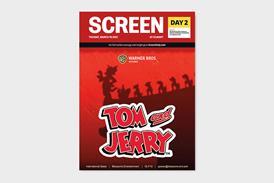



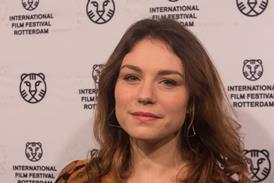
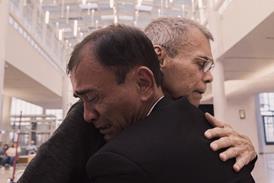




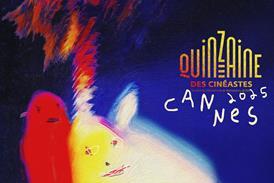
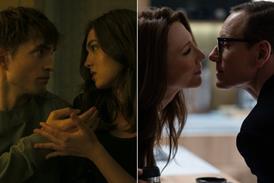





No comments yet